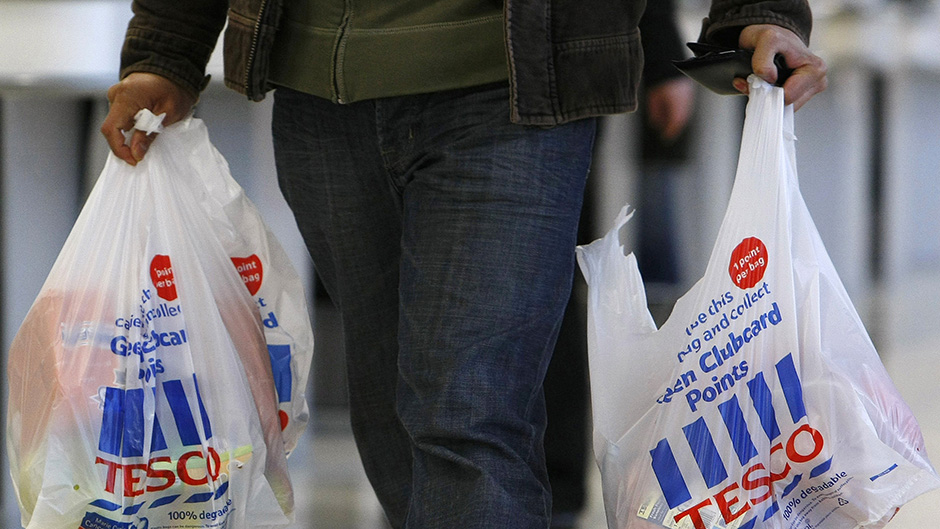
The European Parliament has voted to ban a range of single-use plastics such as straws, cotton buds and cutlery and to ensure most bottles are recycled in a bid to curb ocean pollution.
Under the proposal, 10 single-use plastic products would be banned by 2021 and EU states obliged to recycle 90% of plastic bottles by 2025.
After the vote was carried by 571-53 on Wednesday, the Member of the European Parliament (MEP) who proposed the bill, Frederique Ries, tweeted that it was "a victory for our oceans, for the environment and for future generations."
"We have adopted the most ambitious legislation against single-use plastics," she was quoted as saying in a statement posted on the parliament's website.
"It is essential in order to protect the marine environment and reduce the costs of environmental damage attributed to plastic pollution in Europe, estimated at 22 billion euros ($25bn) by 2030."
The European Commission proposed the ban in May. It will need to be approved by member states after negotiations, which Ries is optimistic will be successful.
"It is up to us now to stay the course in the upcoming negotiations with the Council, due to start as early as November," she said.
China last year banned the imports of 24 varieties of solid waste, including types of plastic and unsorted paper, putting pressure on Europe to deal with its own waste.
The World Economic Forum estimates that there are about 150 million tons of plastic in the world's seas. A study published in Science in 2015 suggested that between five and 13 million tons more are flowing into them every year.
Research shows there will be more plastic than fish by weight in the world's oceans by 2050, which has spurred policy makers, individuals and companies into action.
Proposed EU rules
The list of proposed banned items includes polystyrene fast-food containers and products made of oxo-degradable plastics. The consumption of several other items, for which no alternative exists, will have to be reduced by member states by least 25% by 2025. This includes single-use burger boxes, sandwich boxes or food containers for fruits, vegetables, desserts or ice creams, the parliament said in its statement.
MEPs agreed that reduction measures should also cover waste from tobacco products, in particular, cigarette filters containing plastic.
The advocacy group, Rethink Plastic alliance, welcomed the proposed directive, but said that it didn't go far enough.
"The European Parliament has made history by voting to reduce single-use plastics and slash plastic pollution in our rivers and ocean," said Justine Maillot, EU Affairs Project Officer at Surfrider Foundation Europe on behalf of Rethink Plastic.
"Citizens across Europe want to see an end to plastic pollution. It's now up to national governments to keep the ambition high, and resist corporate pressure to continue a throwaway culture," he added.
However, the alliance added in a statement that it was disappointed the parliament didn't ban very light-weight single-use plastic bags.
Several countries are considering banning single-use plastics. The UK has launched a consultation on banning plastic straws, along with drink stirrers and cotton swabs.
European nations began phasing out plastic bags more than 15 years ago. Dozens of other countries and cities have already imposed bans or restrictions on plastic goods, including microbeads, plastic straws and coffee pods.
Kakvo je tvoje mišljenje o ovome?
Učestvuj u diskusiji ili pročitaj komentare





 Srbija
Srbija
 Hrvatska
Hrvatska
 Slovenija
Slovenija


























































